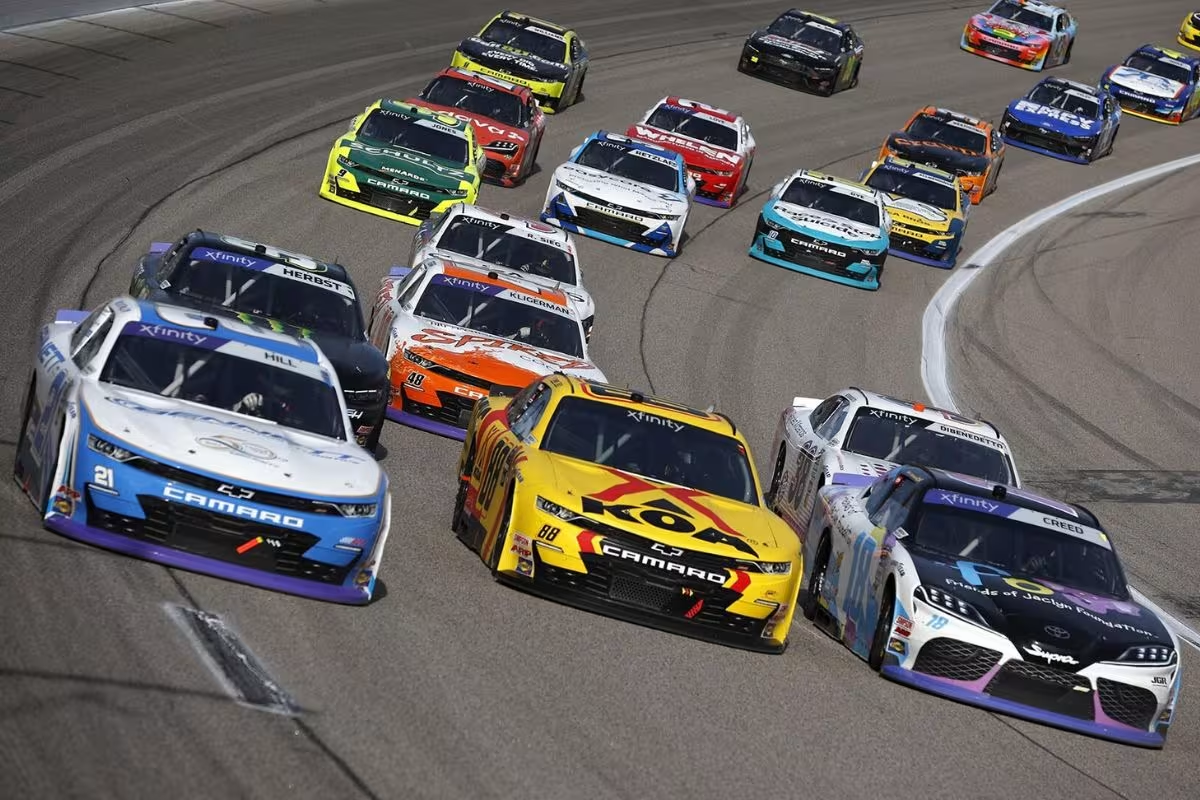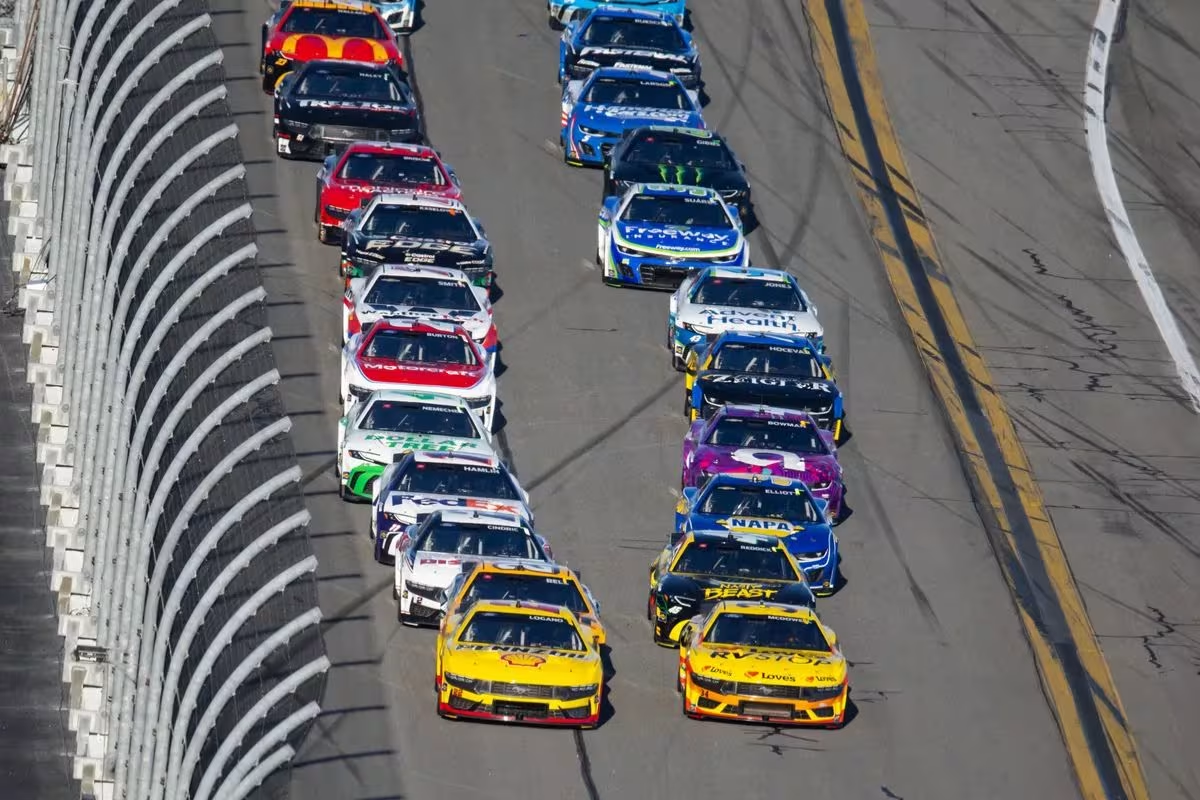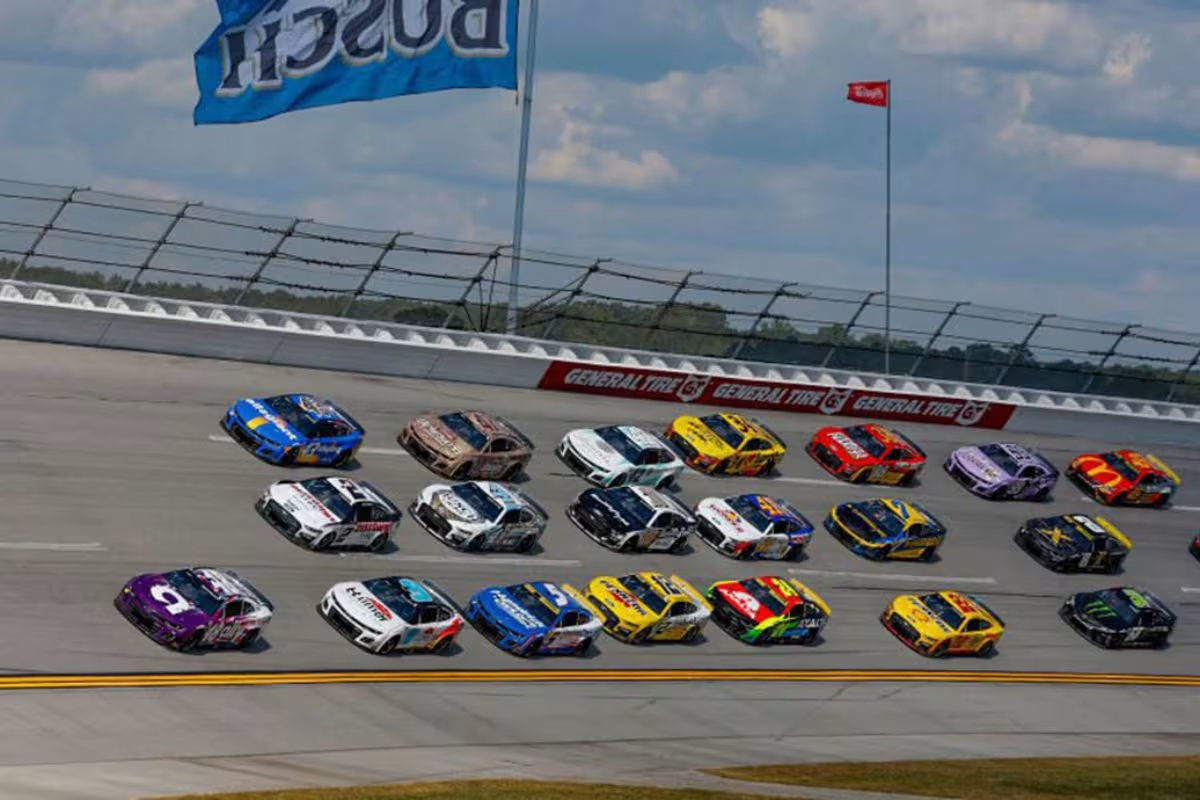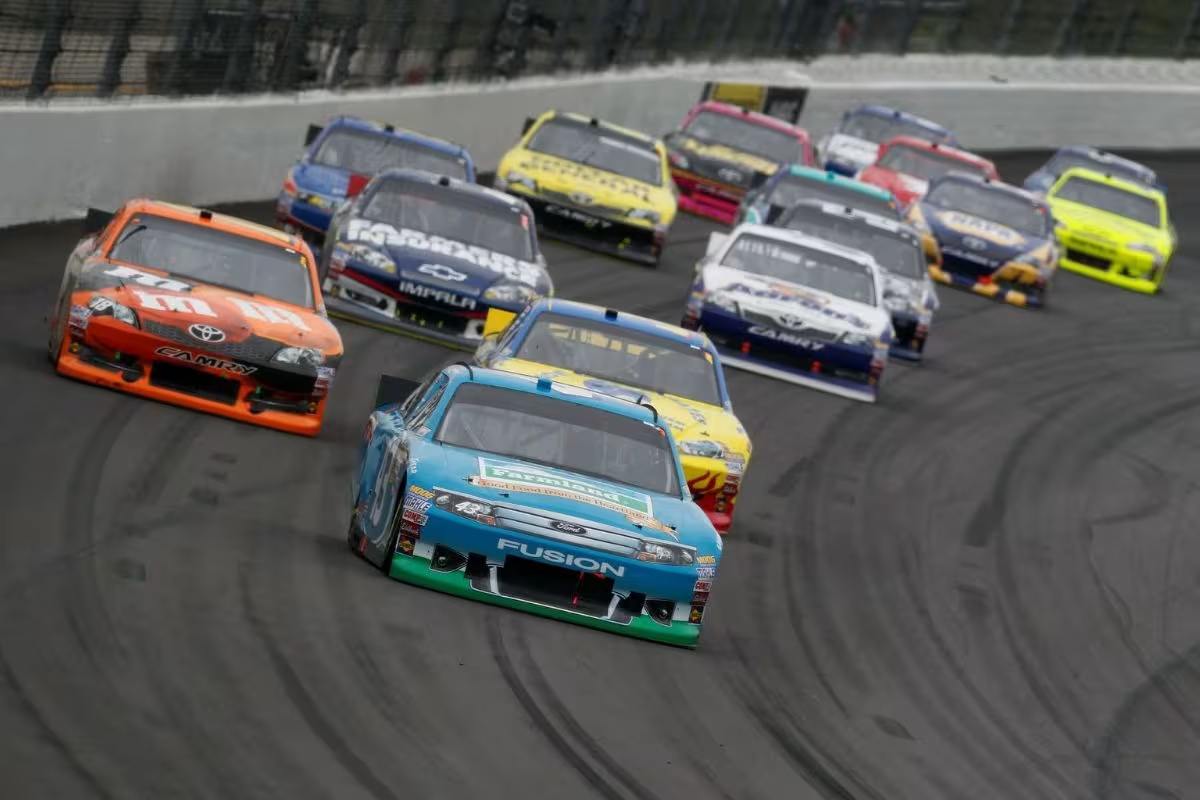NASCAR Lawsuit Exposes Disturbing Truths: The current lawsuit against NASCAR serves as a critical lens through which the sport’s foundational governance and economic practices can be scrutinized. Allegations of monopolistic behavior and inequitable charter agreements not only raise questions about financial sustainability for teams but also cast a shadow over the integrity of NASCAR’s operational model. With influential figures backing this legal challenge, the potential for systemic change looms large.
Key Highlights
- The lawsuit challenges NASCAR’s monopolistic practices, risking financial instability and undermining the sport’s competitive landscape.
- Allegations of unfair charter agreements could diminish teams’ revenue potential, threatening their sustainability and long-term viability.
- Centralized control under the France family limits teams’ growth opportunities and fosters discontent among team owners, jeopardizing NASCAR’s collaborative spirit.
- Financial pressures from high operational costs and inadequate revenue distribution may lead to widespread team closures, damaging NASCAR’s overall health.
- The outcome of this legal battle may set a precedent for governance in sports, influencing management practices across various leagues.
The Legal Battle Against NASCAR
The ongoing legal battle against NASCAR highlights notable concerns regarding the organization’s monopolistic practices and governance structure. This lawsuit, brought forth by teams such as 23XI Racing and Front Row Motorsports, emphasizes a systemic issue within NASCAR’s operation that has persisted for years.
Jeffrey Kessler, the attorney representing the plaintiffs, articulates a pressing need for “significant change,” indicating that the grievances extend beyond isolated incidents to a broader, entrenched culture of exclusivity and control.
At the heart of this legal confrontation lies the charter agreement, which has become a focal point for allegations of autocratic management practices orchestrated by the France family. The situation escalated when prominent figures like Michael Jordan and Bob Jenkins reached their breaking point, opting to seek judicial intervention rather than continuing negotiations.
Their refusal to acquiesce to NASCAR’s terms is a reflection of the frustrations that have been brewing within the racing community, where perceived monopolistic practices have stifled competition and innovation.
The implications of this lawsuit are profound. As the legal proceedings unfold, they not only threaten the current governance structure of NASCAR but also pose critical questions about the organization’s future viability.
Should the plaintiffs prevail, the repercussions could catalyze a significant shift in how NASCAR operates, potentially dismantling a long-standing autocracy and ushering in a new era of accountability and transparency in the sport.
The Core of the NASCAR Lawsuit
NASCAR’s lawsuit serves as a crucial lens through which the sport’s intricate and often opaque financial machinations are being examined. With the France family’s 76-year dominance over NASCAR, the legal proceedings aim to reveal the complexities of its financial ecosystem. The lawsuit’s objectives extend beyond establishing a fair charter agreement; they explore the depths of NASCAR’s operational structure, challenging the alleged monopoly and its financial implications.
The core issues at stake revolve around the extraction of funds, the distribution of revenue, and the overarching power dynamics within the sport. As the lawsuit progresses, the focus will not only be on financial practices but also on the governance that has allowed these practices to flourish unchecked.
| Key Issues | Implications |
|---|---|
| Duration of Control | 76 years of potential monopolistic practices |
| Financial Transparency | Lack of clear insight into revenue streams |
| Revenue Distribution | Unequal sharing among teams and stakeholders |
| Governance Structures | Concentration of power within the France family |
| Legal Examination | Potential for notable changes in NASCAR’s operational model |
The implications of these revelations could reshape the sport’s hierarchy and redefine its financial landscape. As stakeholders await the outcomes, the lawsuit poses fundamental questions about accountability and ethics in NASCAR, setting a precedent for future governance and operational standards. The unfolding narrative highlights a crucial turning point for NASCAR, potentially altering its path forever.
Economic Disadvantages for Teams
Frequently overlooked in discussions about NASCAR’s financial framework are the considerable economic disadvantages faced by teams, particularly in view of the existing charter agreements. Journalist Jeff Gluck highlights that these agreements contain numerous one-sided terms which notably undervalue the teams’ potential revenue. In a competitive market, teams would expect a more equitable distribution of earnings, yet the current structure leaves them grappling for a reasonable return on their substantial investments.
“included numerous one-sided terms that were far less than what the teams would receive in a competitive market. It did not provide a fair split of revenue so that the teams would have a chance to earn a reasonable turn on their investment.” -(jeff gluck)
Compounding this issue is the ownership structure surrounding the Next Gen car. Teams invest approximately $3 million per vehicle, yet they do not retain ownership of the car or its components. This lack of ownership further worsens financial pressures, as teams must allocate around $18 million annually to operate a chartered team, exclusive of driver salaries.
Such financial burdens are untenable for many organizations, leading to an unsustainable model where profitability remains elusive. The implications of these economic disadvantages are profound. Teams are forced to navigate a landscape that prioritizes the interests of the sanctioning body over their financial viability.
This imbalance jeopardizes the teams’ operational stability and threatens the broader integrity of NASCAR as a sport. Without meaningful reform in the charter agreements and a more equitable revenue-sharing model, the long-term health of the teams—and, by extension, NASCAR itself—remains in jeopardy.
Jim France’s Control Over NASCAR
Under Jim France’s leadership, NASCAR has increasingly centralized control over essential aspects of the sport, raising considerable concerns among team owners. The recent lawsuit highlights notable infringements on intellectual property rights, particularly concerning team branding. Teams find themselves stripped of autonomy in defining their identities, as NASCAR dictates branding policies without consultation.
This centralization extends to racetracks, with NASCAR’s acquisition of the International Speedway Corporation further consolidating its grip on the sport’s infrastructure.
Moreover, NASCAR’s restrictive policies stifle teams’ opportunities for growth beyond the confines of its events. Teams like 23XI Racing and Front Row Motorsports (FRM) express frustration over their inability to pursue alternative racing venues or events, limiting their exposure and potential revenue streams. These constraints not only hinder the individual teams but also pose a broader threat to the sport’s diversity and innovation.
The mounting dissatisfaction has catalyzed a response, as evidenced by 23XI Racing’s active stance against NASCAR’s overarching control. Led by Denny Hamlin, a prominent figure within the sport who advocates for equitable treatment, there is a growing determination among team owners to reclaim some degree of influence.
Without meaningful dialogue and change, Jim France’s consolidation of power risks alienating the very teams that form the backbone of NASCAR. This dynamic presents a vital challenge that could fundamentally alter the landscape of the sport, as teams work for a partnership that acknowledges their contributions and aspirations.
The End Goal: A Fair Partnership
Achieving a fair partnership in NASCAR requires a fundamental shift in the dynamics between team owners and the governing body. Recent developments, particularly the controversial charter agreement, have highlighted the pressing need for reform. With team owners facing an ultimatum to sign the agreement under duress, the atmosphere of coercion has raised considerable concerns about the sport’s governance.
“It’s actually pretty simple in my opinion. When I look around, I see that the best and most competitive sports in the world understand that when teams thrive, fans benefit, and that everyone who invests in making the sport a success should share fairly in that success. With the right changes, we can certainly make that a reality in racing. A true partnership, not dictatorship, is our goal.” -(curtis )
The response from teams like 23XI Racing and Front Row Motorsports, who are pursuing legal action for treble damages, demonstrates their determination to challenge these anti-competitive practices.
Denny Hamlin covers the core of this movement, positing that a thriving ecosystem benefits fans, teams, and investors alike. His assertion reflects an understanding that successful partnerships, built on mutual respect and shared success, can improve the sport’s integrity and competitiveness.
Curtis Polk’s emphasis on evolving from a dictatorial approach to a collaborative partnership resonates deeply within the current landscape.
As the legal battle unfolds, the industry watches closely, hopeful that these efforts will catalyze a new era where all stakeholders can partake in the sport’s prosperity.

News in Brief: NASCAR Lawsuit Exposes Disturbing Truths
The ongoing lawsuit against NASCAR highlights crucial issues regarding monopolistic governance and exploitative agreements that threaten the financial stability of racing teams. Without substantial reforms, the sport risks losing its integrity and alienating both teams and fans. The emergence of influential advocates for change, such as Michael Jordan, emphasizes the urgent need for a reevaluation of NASCAR’s power structures. Ultimately, nurturing a fair partnership among stakeholders may be vital for preserving the sport’s long-term viability and sustainability.
ALSO READ: NASCAR’s Future in Jeopardy: Michael Jordan Walks a Tightrope Amid Lawsuit



